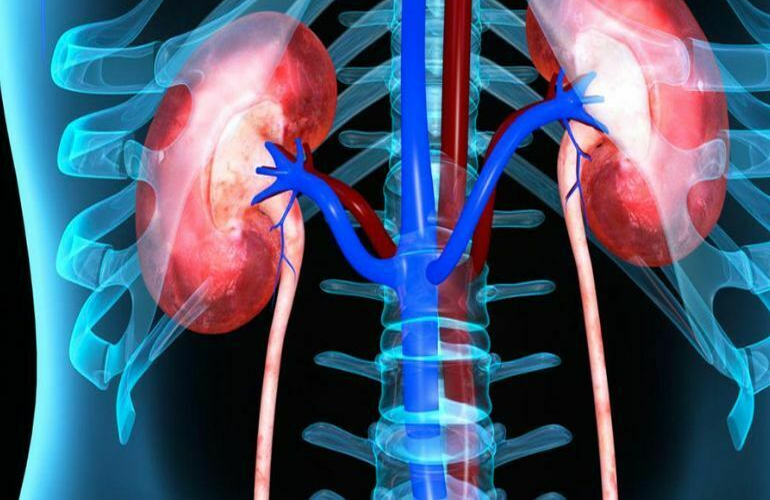Nephrology

Nephrology is a medical discipline that undertakes the diagnosis, treatment, and administration of kidney diseases. Nephrologist in Guntur commonly perform treatments at kidney hospitals in AP for kidney stones and kidney failure disorders. Nephrology also focuses on comprehensive care for kidney problems associated with other medical conditions and ailments, like diabetes and hypertension.Consult the best kidney doctors in Guntur for kidney failure treatment in AP, Kidney transplantation in Guntur at Nephrology hospitals.
Chronic kidney disease in Guntur means your kidneys are damaged and can’t filter blood the way they should ideally be functioning. This damage can cause wastes to build up in your body. The disease is called “chronic” because the damage to your kidneys happens slowly over a long period of time. CKD can have a ripple effect and cause other health problems as well.
| Stage | GFR Categories in CKD Description | Glomerular Filtration Rate (GFR) |
|---|---|---|
| At increased risk | With risk factors for CKD (diabetes, high blood pressure, family history, older age, etc.) | More than 90 |
| 1 | Kidney damage (protein in the urine) and normal GFR | More than 90 |
| 2 | Kidney damage and mildly decreased GFR | 60-89 |
| 3 3a | Mildly to moderately decreased GFR | 45-59 |
| 3 3b | Moderately to severely decreased GFR | 30-44 |
| 4 | Severely decreased GFR | 15-29 |
| 5 | Kidney failure | Less than 15 |
When your kidneys stop working suddenly, over a very short period as an increase in creatinine or decreased urine in a matter of a few hours to days, it is called acute kidney injury (AKI). AKI is sometimes called acute kidney failure or acute renal failure. It is very serious and requires immediate treatment.
| Stage | Serum Creatinine (SCr) Criteria | Urine Output Criteria |
|---|---|---|
| 1 | 1.5 to 1.9 times baseline OR ≥26 ㎛ol/L (≥3.0 mg/dL) increase | <0.5 ml/kg/hr for 6-12 hrs |
| 2 | 2 to 2.9 times baseline | <0.5 ml/kg/hr for ≥12 hrs |
| 3 | Serum creatinine increase 3.0 times baseline (OR) Increase in serum creatinine ≥354 ㎛ol/L (≥4.0 mg/dL) (OR) Initiation for RRT (OR) In patients <18 years, decrease in eGFR to <35 ml/min per 1.73 m2 | <0.3 ml/kg/hr for ≥24 hrs (OR) Anuria for ≥12 hrs -89 |
Dialysis in Guntur is performed externally when the internal kidneys fail – which means they are performing at only 10 to 15% of their normal function. Kidneys not just prevent extra water, waste and other impurities from accumulating in the body, but they also help in regulating the blood pressure and chemical elements in the blood. So not performing timely dialysis can even be fatal as all the accumulated deposits of salts and waste can poison the body.
Is subjective to the stage of kidney disease, blood work results, medications, and any other dietary needs :
There are 4 kinds of kidney transplants that we perform:
When a person’s kidneys don’t function properly, a surgical procedure is performed to place a kidney into the patient from a living or deceased donor. In a healthy human body, kidneys are responsible for removing excess fluid and waste from the blood. When the organ loses its filtering ability, dangerous levels of waste and fluid build-up leading to kidney failure or end-stage kidney disease. In such cases, kidney transplant is the best treatment for the patient.
A single donated kidney can be used to replace two failed kidneys. Therefore, living-donor kidney transplantation is a viable option. In certain cases when the patient is unable to find a compatible living donor, their name is added to a kidney transplant waiting list until a matching deceased donor can be identified.
A kidney transplant is a treatment for kidney failure (end-stage kidney disease). In this condition, kidneys can function only at a fraction of normal capacity. Patients suffering from end-stage kidney disease must either get waste removed from their bloodstream via dialysis or a kidney transplant.
At Uday Hospital though we do not perform kidney transplants yet, we educate the patients and the caregivers about the risks they pose about kidney-related problems because the symptoms are very subtle and most often detected after it is too late and will require dialysis or transplant. It is always better to have regular check-ups done either through a nephrologist or via Master Health Checkups that help in keeping a regular tab.
